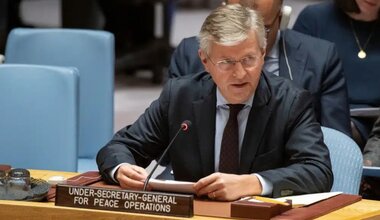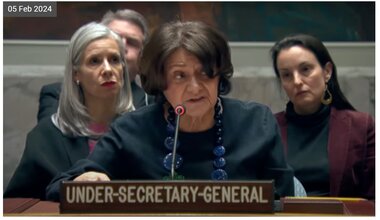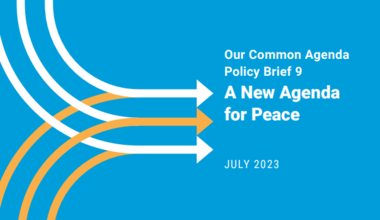“The European Union and its member states are very important partners for the UN as a whole and for peacekeeping in particular, in many different ways. With the EU we have a close cooperation including on the ground.
News
For news from the UN Secretariat, click on the links below:
- Department of Peacekeeping Operations (DPO)
- Department of Political and Peacebuilding Affairs (DPPA)
- Department of Operational Support (DOS)
- UN Office of Counter-Terrorism (UNOCT)
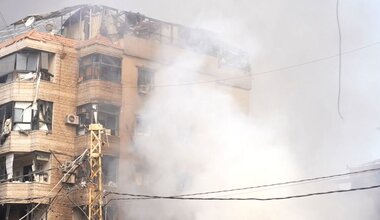
© UNHCR/Houssam Hariri A building on fire after an attack in a suburb of Beirut, the capital of Lebanon
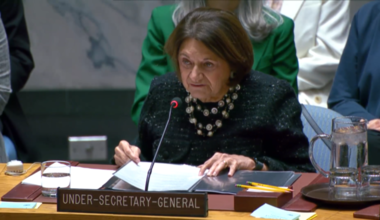
DiCarlo: "We need to invest every effort to reverse this cycle of violence and bring Lebanon and Israel - and the region - back from the brink of catastrophe"
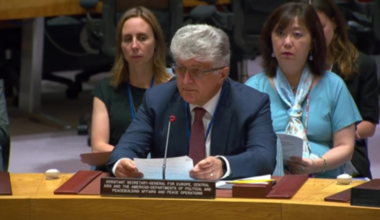
We cannot allow horrific devastation of Russia-Ukraine war to become normalized, tells ASG Jenča tells Security Council
 UN
UN
